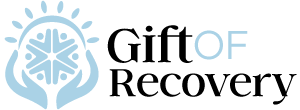When you know someone addicted to mind altering drugs including alcohol, you keep waiting for a moment in that person’s life when he or she will want help. The myth is you have to wait until the person “bottoms out” and asks for help. Instead of waiting for this to happen (and it seldom does) you can be part of a positive presentation , which will create an insight and action both for you and your lovedone. This is the gift of recovery!
WHAT IS AN INTERVENTION?
`An intervention is a highly structured meeting with a professional Interventionist in which a team of caring family members and friends present the reality of the person’s behavior with dignity and love. A treatment plan is offered for recovery. The process helps the family and friends to establish healthy boundaries and begin their own recovery.
Intervention is a five step process:
- Inquiring
- Assessment
- Preparation
- Intervention
- Continuing Care

WHAT INTERVENTION DOES FOR THE FAMILY
- Provides education on how to begin to lovingly change the mental state of your loved one so he or she will accept help.
- Provide s a safe place to tell the person that you do not plan to lose him or her to a treatable disease.
- Release s all involved from the grip of addiction on their lives.
- Offers you a plan of action.
WHAT INTERVENTION DOES FOR YOUR LOVED ONE
- Provides a release from the prison of denial and the process of self destruction.
- Motivates your loved one to take immediate action against the disease.
- Sends the message that you will no longer accept, protect, or nurture the addiction.
- Redirects the negativity of the addicted life to one of meaning and purpose via treatment.
Free 30-minute consultation
REFERRALS
Individuals have been referred to our services by a variety of sources including counselors, family therapists, social workers, psychologists, EAP’s Educational Consultants, Treatment Centers, Schools, Hospitals, Wilderness Programs, Academies, and other private practitioners in the mental health field.


